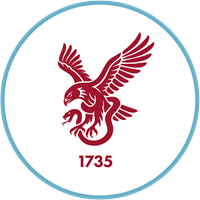In the MFL department we aim to teach a love of language and a joy in being able to speak another language by teaching pupils how to communicate, to understand the complexity of language, to understand grammar and how we recycle language (key structures) to communicate with others. By teaching another language we are teaching pupils to understand and relate better to their first language and develop empathy, interest and understanding of others and their cultures.
The curriculum is designed to build upon some prior learning at KS2, however our scheme of work for the start of Year 7 is also designed to cater for those who have not had any previous exposure to French. The complexity of grammatical structure is systematically developed and revisited through age appropriate, engaging topics, tailored towards the GCSE syllabus. All students are challenged and supported to help them to develop their language learning skills and resilience in a secure environment. The grammatical knowledge and understanding, and vocabulary that students gain through our curriculum enables success at GCSE and a smooth transition to the demands of language study at KS5 as well as giving them the foundation for learning further languages, giving them the skills to succeed in the workplace and become more rounded global citizens.
Progress expectations are clearly defined in the pupil learning pathway (personalised learning standards) and all four skills (listening, speaking, reading and writing) are assessed.
“If you talk to a man in a language he understands, that goes to his head. If you talk to him in his language, that goes to his heart.” (Nelson Mandela)
“One language sets you in a corridor for life. Two languages open every door along the way.” (Frank Smith)
“A different language is a different vision of life.” (Federico Fellini)
KS3
At KS3, progress in Listening, Speaking, Reading and Writing skills is reflected upon and assessed throughout each module, so that pupils have acquired the necessary knowledge and skills to enable a smooth transition to KS4. Year 7 and Year 8 will study 4 areas pertinent to their life, they will focus on understanding and expressing descriptions and opinions. Grammatical knowledge will be built upon with key structures to each topic, such as adjectives and time, alongside a study of knowledge which is transferable and relevant for future learning such as opinions and verb conjugation. A range of skills within these key areas will be developed throughout each unit with repeated practice. Each assessment will be used to inform future learning in the next unit, allowing teachers to focus on areas of knowledge and understanding which may need more practice such as retrieval practice, drilling, recalling in order to improve long-term memory.
KS4
At KS4 progress is measured through regular GSCE style tasks and activities in the four skills. They will focus on understanding and expressing previous, current and future events, actualities and intentions. Grammatical knowledge will be built upon providing reinforcement from KS3, alongside understanding and application of more complex structures and verb conjugation. Each assessment will focus on a particular exam skill element usually a productive skill as these are commonly the hardest for students. This allows students and teachers to see particular areas of strength and areas to work on in terms of knowledge, understanding and skill.

